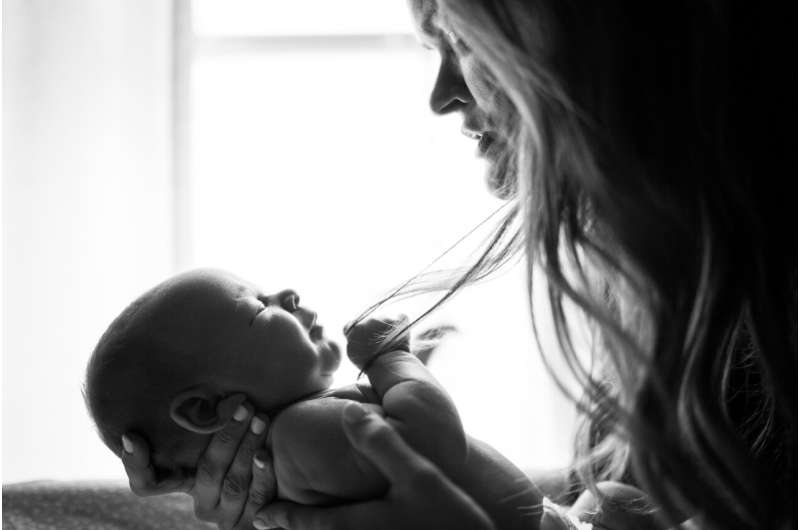Pandemic-related grief may hamper bond between mothers and babies

The emotional connection between a mother and her newborn baby can lay the foundation for the child's development and the family's outcomes. But poor mental health after giving birth can make it difficult for a mother to form this connection, known as mother-infant bonding. Given the rise of depression and anxiety symptoms due to the psychological impact of the COVID-19 pandemic on women who have recently given birth, researchers from Brigham and Women's Hospital conducted a study of mother-infant bonding during the pandemic. Based on results from an online study referred to as the PEACE Study (Perinatal Experiences and COVID-19 Effects), they found that grief due to lost experiences during the pandemic as well as symptoms of depression were associated with lower levels of mother-infant bonding. However, anxiety symptoms were not, and women who reported health worries related to COVID-19 were, in contrast, more likely to report higher levels of infant bonding. Results are published in Pediatric Research.
"Becoming a mother is a complex experience, and the postpartum period is a time when women may be at increased risk for mental health concerns," said corresponding author Cindy Liu, Ph.D., of the Departments of Pediatric Newborn Medicine and Psychiatry at the Brigham. "Maternal emotional experiences linked to the pandemic may have an effect on the new and formative relationships being established between mothers and infants."
"The perinatal period is a time of vulnerability for both new mothers and their infants," said study co-author Carmina Erdei, MD, of the Department of Pediatric Newborn Medicine. "The bonding process is particularly vulnerable when mothers experience postnatal depression and can have consequences for the health and well-being of the mother, as well as neurodevelopment of the infant. This is an opportunity for us as professionals to intervene with anticipatory guidance and enhanced support for mothers who are struggling with depression, to set the infant and family for long-term success."
To study the links between mother-infant bonding experiences and mental health symptoms, psychological experiences and COVID-19-related concerns among postpartum women, the researchers drew upon data from online surveys collected as part of the PEACE study, which was launched in May 2020. Postpartum women who gave birth in the previous six months were recruited to participate and data were collected through August 2020. Respondents were asked to rate levels of mother-infant bonding. To capture pandemic-related grief, the team included language about signs and symptoms of grief that women might have experienced due to the pandemic (for instance, "feeling stunned or dazed," "feeling that life is empty," and "feeling bitter").
Overall, the team found that depressive symptoms, but not anxiety symptoms, were associated with lower ratings of mother-infant bonding. The team also found that higher levels of self-efficacy—a mother's confidence in her parenting and caregiving abilities—were associated with higher levels of mother-infant bonding. Social support—a person's perceived support from family, friends, or a significant other—was not associated with levels of mother-infant bonding.
"There is currently an emphasis on increased social support and connection during the COVID-19 pandemic," said Liu. "But our work suggests that we should also consider channeling support toward mothers who are experiencing depression, including those who particularly felt dazed or a sense of the surreal as a result of the pandemic. For mothers, our message is, 'Don't dismiss the effects of the pandemic on your well-being and the way it may affect your relationships with others, including with your baby.'"
The authors note that their study is survey-based, may be subject to participants' recall bias and cannot prove causation. The study was also largely comprised of women who are white and of high socioeconomic status, thus its findings may not be generalizable across demographics.
The team plans to conduct a longitudinal study of mothers and infants over time to continue to observe and define mother-infant bonding.
"Our study underscores the importance of supporting and screening for postpartum depression during maternal follow-up visits and well-child visits," said Liu. "It's also important to assess the unique COVID-19-related concerns that a family might experience to help foster relationships within the family."
More information: Liu CH et al. "Psychological Risks to Mother-Infant Bonding during the COVID-19 Pandemic" Pediatric Research DOI: 10.1038/s41390-021-01751-9




















